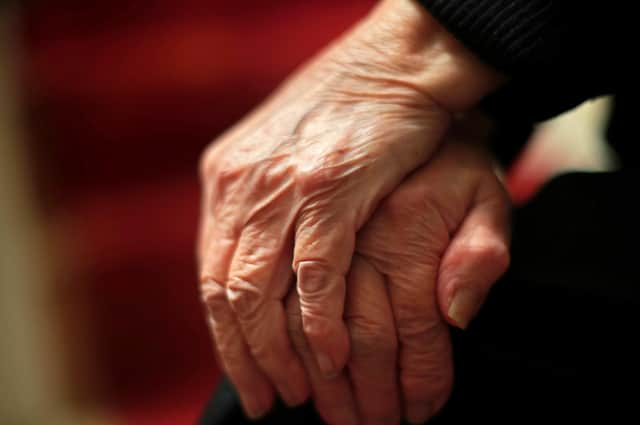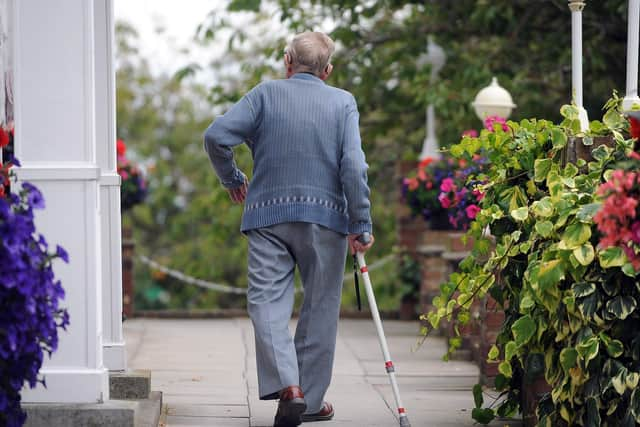Assisted dying; why former Met police commissioner backs law change – Bernard Hogan-Howe


THE proposal to assist people to die is a question that can divide reasonable people.
It is said that people hold their views strongly and will not change their minds, but I have.
Advertisement
Hide AdAdvertisement
Hide AdI support this Bill now in a way I would not have a few years ago.


Over the years I have heard the medical profession argue strongly that a good death is available to everyone and we need not fear our final hours and days.
And yet we have heard today, and we know personally from friends and family, of people who had appalling deaths.
I do not understand how that can be if a good death is so universally available.
Advertisement
Hide AdAdvertisement
Hide AdDoes it depend on the point of view from which a good death is viewed?


Surely the only one which matters is that of the patient?
We are warned that the proposal could lead to the patient being bullied or making a guilt-ridden decision to end their life, but this Bill applies only to those within six months of their death.
Why would the patient’s relatives take the risk of a criminal investigation, when all they had to do was wait for six months to be released from their burden of care or receive the financial benefits of inheritance?
However, should they take that risk, the intervention of a doctor or High Court judge is, I am sure, more likely to discover a case than the present system, which provides no systematic investigation at all before a patient dies.


Advertisement
Hide AdAdvertisement
Hide AdMy principal reason for now supporting this proposal is to do with choice.
Choice has two stages: the first is to have an option available to assist a patient in ending their life, and the second is the possibility of accessing that option. I can only imagine the torment and hopelessness of a person who knows they are dying.
Most people explain instinctively that they are not worried necessarily about losing their life but about the process they have to endure.
None of us wants to suffer pain. All of us want to retain dignity, and, where there are remaining friends and relatives, our concerns are always for them and can be stronger than concerns for ourselves.
Advertisement
Hide AdAdvertisement
Hide AdIn such circumstances, how can the state, or indeed this Parliament, deny individuals the option of a controlled death, when surveys tell us that 85 per cent of those surveyed believe our democracy should put in place such an option for them should they need it?
Finally, it has to be wrong that the option of an assisted death is available to those who can afford to travel to Switzerland, those who have someone who cares enough for them to help them and those who are physically able to make the journey.
What happens if you are poor, alone or physically unable to make that journey? Surely we should help those patients, too.
Why should they have to die on a grey industrial estate in a foreign country rather than in their own home, in surroundings that provide comfort, with friends around them to say goodbye – as we have heard – and pets to hug and seek solace from?
Advertisement
Hide AdAdvertisement
Hide AdIn my view, this is unfair, and I have always been angered by unfairness.
Until 1961, it was a criminal offence for a person to attempt and fail to commit suicide.
At this great watershed we halted what I believe to be a nonsense: an institutional approach which lacked empathy and care.
In 2021, the time has come for this Parliament to send a clear signal that we have heard and had enough of the suffering caused by the present law and to provide a choice that the people of this country deserve.
Advertisement
Hide AdAdvertisement
Hide Ad* In his contribution, the Archbishop of Canterbury, the Most Rev Justin Welby, said: “Sadly, I believe this Bill to be unsafe. As a curate and parish priest, I spent time with the dying, the sick and the bereaved. I still do.
“All of us have personal experience; I have as well. We know that the sad truth is that not all people are perfect, not all families are happy, not everyone is kind and compassionate. No amount of safeguards can perfect the human heart.
“No amount of regulation can make a relative kinder or a doctor infallible. No amount of reassurance can make a vulnerable or disabled person feel equally safe and equally valued if the law is changed in this way.”
Support The Yorkshire Post and become a subscriber today. Your subscription will help us to continue to bring quality news to the people of Yorkshire. In return, you’ll see fewer ads on site, get free access to our app, receive exclusive members-only offers and access to all premium content and columns. Click here to subscribe.
Comment Guidelines
National World encourages reader discussion on our stories. User feedback, insights and back-and-forth exchanges add a rich layer of context to reporting. Please review our Community Guidelines before commenting.